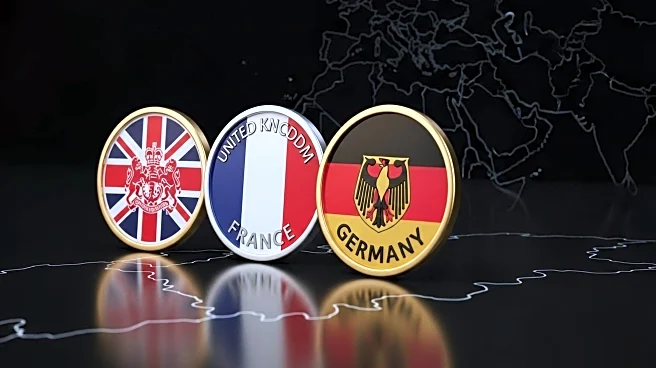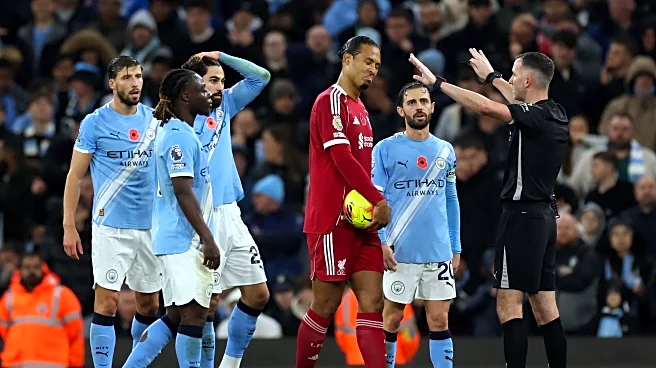What is the story about?
What's Happening?
The United Kingdom, France, and Germany have reinstated sweeping United Nations sanctions on Iran, marking a significant shift in international relations ten years after the original nuclear deal was established. This decision comes as the three European nations activated the 'snapback' mechanism due to Iran's continued nuclear escalation and lack of cooperation with the International Atomic Energy Agency (IAEA). Iran had suspended inspections of its nuclear facilities following bombings by Israel and the United States on several of its nuclear sites and military bases. Iranian President Masoud Pezeshkian has condemned the reimposition of sanctions, labeling them as 'unfair, unjust, and illegal.' The Joint Comprehensive Plan of Action (JCPOA), initially aimed at limiting Iran's nuclear capabilities while allowing the development of nuclear power infrastructure, has faced challenges since President Trump withdrew the U.S. from the agreement in 2018.
Why It's Important?
The reimposition of sanctions on Iran is a critical development in international diplomacy, affecting global nuclear non-proliferation efforts and regional stability in the Middle East. The sanctions are likely to impact Iran's economy significantly, potentially exacerbating tensions within the region. The move underscores the ongoing challenges in negotiating nuclear agreements and maintaining compliance, especially in light of Iran's alleged support for regional proxies attacking Israel. The decision by the UK, France, and Germany reflects their commitment to preventing nuclear escalation and ensuring regional security, but it also highlights the complexities of international diplomacy and the fragile nature of multilateral agreements.
What's Next?
The reimposition of sanctions is not seen as the end of diplomatic efforts, as the UK, France, and Germany have expressed their intention to continue pursuing diplomatic routes and negotiations with Iran. The situation may lead to further diplomatic engagements or potential retaliatory actions from Iran, which could affect regional security dynamics. The international community will likely monitor Iran's response closely, as well as any changes in its nuclear activities. The future of the JCPOA remains uncertain, with potential revisions or new negotiations possibly on the horizon.
Beyond the Headlines
The sanctions reimposition raises ethical and legal questions about the fairness and effectiveness of international agreements and sanctions as tools for compliance and peacekeeping. It also highlights the geopolitical complexities of the Middle East, where nuclear capabilities and regional alliances play a significant role in shaping international relations. The situation may influence future diplomatic strategies and the role of international organizations like the UN in mediating conflicts and enforcing agreements.
















